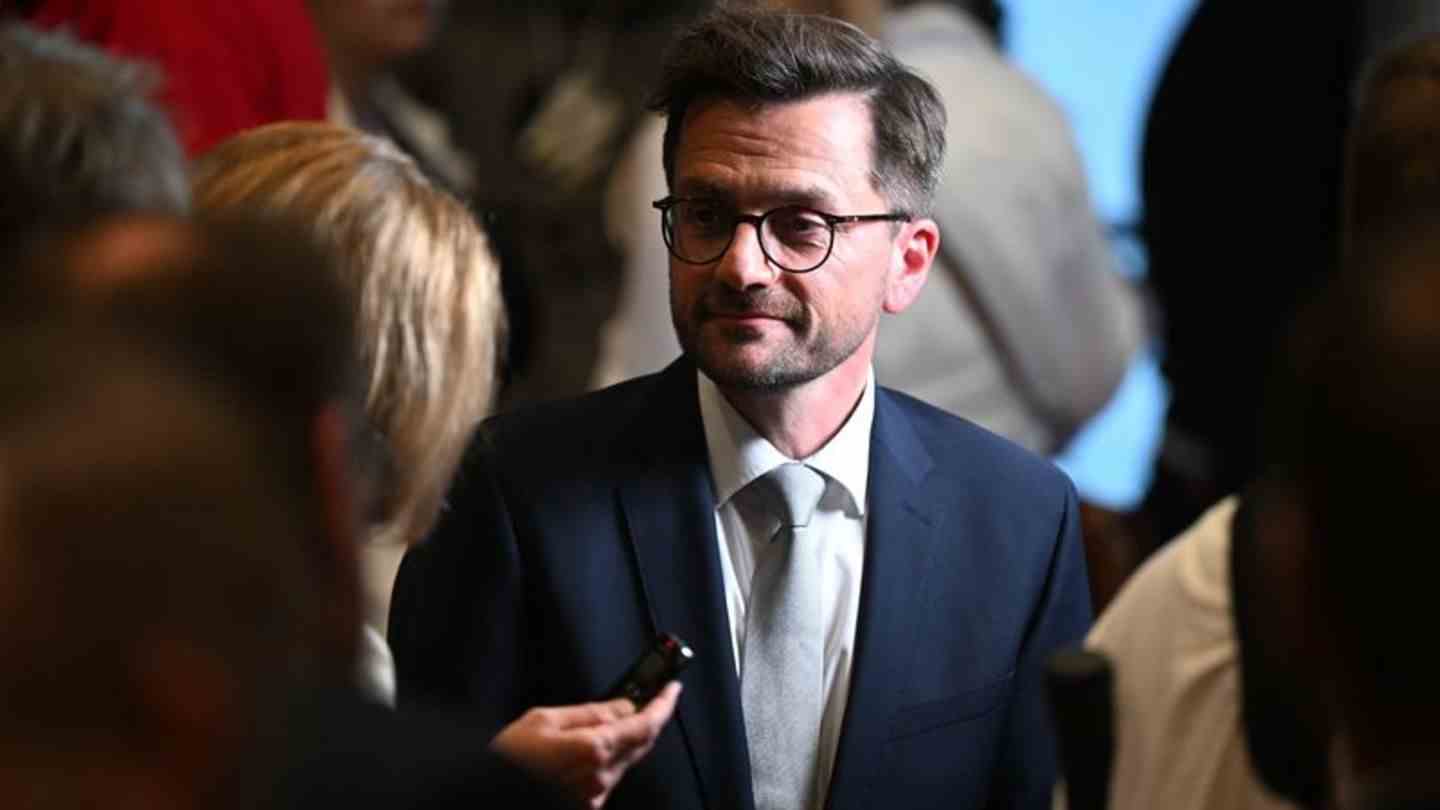Reactions after the NRW election
Kuchaty: “We are also ready for talks”
After the state election, the SPD’s top candidate, Thomas Kutschaty, signaled his willingness to talk about forming a government. Photo: Federico Gambarini/dpa
© dpa-infocom GmbH
Prime Minister Hendrik Wüst’s CDU clearly won the state elections in North Rhine-Westphalia. The SPD has achieved a historically poor result. What happens now? Reactions after the state election.
The SPD’s top candidate in the NRW state elections, Thomas Kutschaty, wants to continue to take on government responsibility.
“In any case, we are also ready for talks,” said Kutschaty on Monday to the broadcaster WDR 5. The social democrat emphasized that there were “many large intersections” between the Greens and his party, more than with the CDU. “That’s why you have to see what fits together well in terms of program and who can then form the government.” However, with a view to a possible traffic light coalition in Düsseldorf, Kutschaty conceded that three-party alliances are more difficult to forge than two-party alliances. “I’m not fooling myself.”
According to preliminary official results, the SPD only won 26.7 percent in the state elections on Sunday, nine percentage points less than the CDU. With the Greens and the FDP, however, it could still be enough to form a traffic light coalition in NRW. When asked whether he would take the initiative, Kutschaty said: “Of course, all parties have long taken the initiative – the top candidates are of course talking to each other, even this morning.” However, it is part of democratic practice for the CDU, as the strongest party, to first talk to the Greens.
Rehlinger: The impact on the federal government will be limited
The SPD Prime Minister of Saarland, Anke Rehlinger, does not expect any major changes in the SPD course in the federal government after the historically poor election result of her party in North Rhine-Westphalia. “I believe that the effects on federal politics will be limited, at least on the SPD side,” Rehlinger said on Deutschlandfunk on Monday. Regarding the role of the Chancellor, she said: “Olaf Scholz helped on site as a campaigner, but he also helped by standing for reliable government policy.” Rehlinger said: “At the end of the day, decisions were made in North Rhine-Westphalia, above all, about state politics.”
Reul: The goal is a “working, reliable government”
Acting Minister of the Interior Herbert Reul (CDU) has emphasized the formation of a “working, reliable” government in North Rhine-Westphalia as the primary goal.
“I would have liked to continue the coalition with the FDP, but the voters decided differently,” said Reul on WDR 5 in the “Morgenecho”. According to the preliminary official result, the CDU got 35.7 percent (2017: 33.0) in the state elections, the FDP had fallen to 5.9 percent. With the Greens – the second election winner on Sunday – the cooperation has so far been “different, as always in life,” said Reul.
When it came to fighting clan crime, the positions of the CDU and the Greens differed significantly. The election winner and incumbent head of government Hendrik Wüst (CDU) wants to talk to all democratic parties, he had announced. With a view to the upcoming talks with the Greens, Reul emphasized that it was about talking to each other “wisely, appropriately and pragmatically”. “Government at any price does not exist.” Mathematically, other alliances are also conceivable. When asked about his reaction if he was asked to be appointed interior minister again, Reul replied: “I wouldn’t refuse.”

